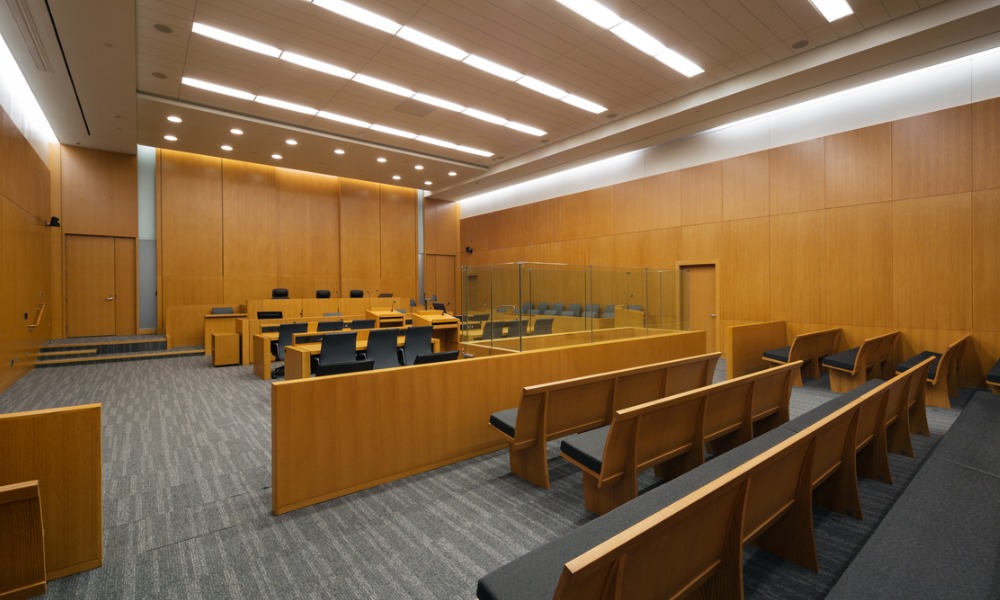FINTRAC to be given expanded powers

The 2023 fall economic statement (FES) issued by the federal government provided not just a snapshot of where the country’s finances are now but also how the government intends to handle money matters in the future. Part of the announced management plans include making changes to Canada’s Anti-Money Laundering and Anti-Terrorist Financing (AML/ATF) regime.
“Every time there’s a new budget or a new economic statement, there’s always AML changes,” says Jacqueline Shinfield, a partner and co-leader of the financial services regulatory group at Blakes. “One of the things you do in the AML world is stay on top of trends. And once you understand the trends, you make sure you have laws to address those trends. People are always getting creative and trying to find ways to evade laws and find different ways of laundering funds.”
The FES included a number of proposed initiatives, but none were really a surprise, explains Shinfield, as the Department of Finance released a consultation paper earlier this year that laid out what it was contemplating. Following the FES, the Notice of Ways and Means Motion to introduce a bill entitled An Act to implement certain provisions in the Fall Economic Statement is now public.
The FES introduces the AML changes with a proposal to permit the “Financial Transactions and Reports Analysis Centre of Canada (FINTRAC) to use its expertise to develop intelligence products, and, where appropriate, disclose its findings to law enforcement partners.”
Shinfield explains that the consultation paper recommended FINTRAC keep a database of politically exposed persons (PEPs). She says PEPs can be people like politicians or judges or people “who are in a position of power who would be in a position to be able to take bribes and be subject to corruption. People like that, from an AML perspective, are seen as higher risk types of clients, and so you have to put measures in place to deal with your higher risk clients.”
According to Shinfield, PEPs are broken into two classes, foreign and domestic, with foreign PEPs always being classified as higher risk (in comparison to domestic PEPs who may not always be seen in that way). Currently, there are private companies operating around the world that compile lists of PEPs, “so it would be great if that list is provided by our own regulator.”
Another change proposed in the FES is to require real estate title insurers and real estate representatives to identify unrepresented parties and third parties in real estate transactions.
Shinfield says that recent legislative amendments addressed mortgage brokers, lenders and administrators and made them compliant with AML procedures, but transactions made without involving members of these professions could still be used to launder money. If title insurers are put under the regime, anybody who applies for title insurance while attempting to funnel illegal money through a real estate transaction would be caught.
Another proposed change in the FES is to put intermediary companies (known as “acquirers”) that operate white-label automated teller machines under the PCMLTFA framework. Quebec already has similar rules, says Shinfield.
“If you have a drug dealer that has huge amounts of cash, how do they launder it? Well, they buy an ATM. They stuff it full of cash. It gets laundered through people taking it out,” she explains.
Another change proposed in the FES is to allow “FINTRAC to share financial intelligence with enforcement officers at Environment and Climate Change Canada and the Department of Fisheries and Oceans.” This, Shinfield says, should help deal with environmental issues, protect endangered species and help catch related crimes.
New changes will also allow FINTRAC to list names of foreign entities that present AML/ATF risks, which Shinfield says is an extension of FINTRAC’s existing ability to produce advisories on high-risk countries.
Other proposals involve making changes to the Criminal Code such as amending the money laundering offence to address challenges in prosecuting third-party money launderers, adapting producer orders for financial data so they can better deal with digital assets and modernizing search and seizure provisions.
The FES also reports that the government intends to create a Trade Transparency Unit under the Canada Border Services Agency (CBSA) to help combat trade-based money laundering.
“It’s a global issue where people engage in trade transactions where they indicate goods are flowing one way and money is flowing the other way, but a lot of the time goods aren’t flowing. It’s just the money flowing.”
While there are likely to be additional AML updates arising from an ongoing consultation process, Shinfield says that lawyers need to carefully consider their clients’ businesses.
“The important thing to understand is who is regulated by this regime. People who are moving money. People who are operating ATMs, anybody who is touching the real estate industry, anyone who is dealing with armoured car carriers, anyone who is dealing in virtual currency – if you have these kinds of clients, that should be a red flag to say, ‘Oh, these guys may be subject to AML. I’d better be sure to do that analysis, and if they are, make sure they get the proper advice for putting AML programs in place.’ It really is understanding who is subject to the regime now because it continues to expand.”










